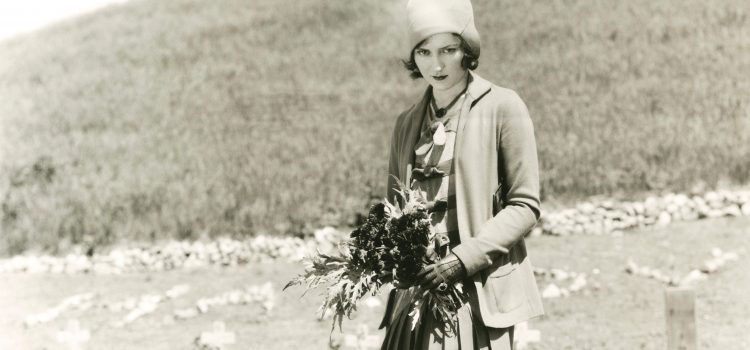
Sometimes events happen in life that force us to remember. The power of remembering ancestors is strong and innate. It’s been interesting that living through a pandemic has made us crave stories and photos from our last great pandemic 100 years ago. Many of us have found time we never thought we’d have and have wanted to remember – not only our “normal” lives but also our personal history and that of those we love. During the pandemic, I wrote in my journal more than in the past several years – it was great. When life started going back to more normal times, I found I did less of the things I had found time to do. So now, I have to be more directed to accomplish those goals.
With my newfound time, I realized I wanted to hold onto the quality family moments. I took more time to record those moments and look back on my family history. I’ve loved remembering times with family members who have passed and reflecting on the simplicity of life when they were alive. It’s a happy place for me. I’ve also discovered that many others have felt this need to remember the power of ancestors.
Related article: Power of Place
When my mom called to let me know my Aunt Linda had passed away I wasn’t surprised. In a way, she hadn’t been with us for several years. Her mind has been trapped by dementia and the lively, kind, and sometimes sassy aunt I adored was already gone. But at the news of her passing I was surprised by the sadness I felt, along with happiness as my memories of her came flooding back. I talked to my husband about it, who hadn’t really known my aunt when she was healthy. I talked to my kids because they knew how much I loved her.
But the power of remembering ancestors, the true remembering, didn’t come until I talked to my sister. We talked for a long time about the tender experiences we each had with her and how thankful we were for parents who gave us opportunities to love our aunts and uncles even though we miss them when they are gone. But the most important part of our talk was, you guessed it, the remembering.
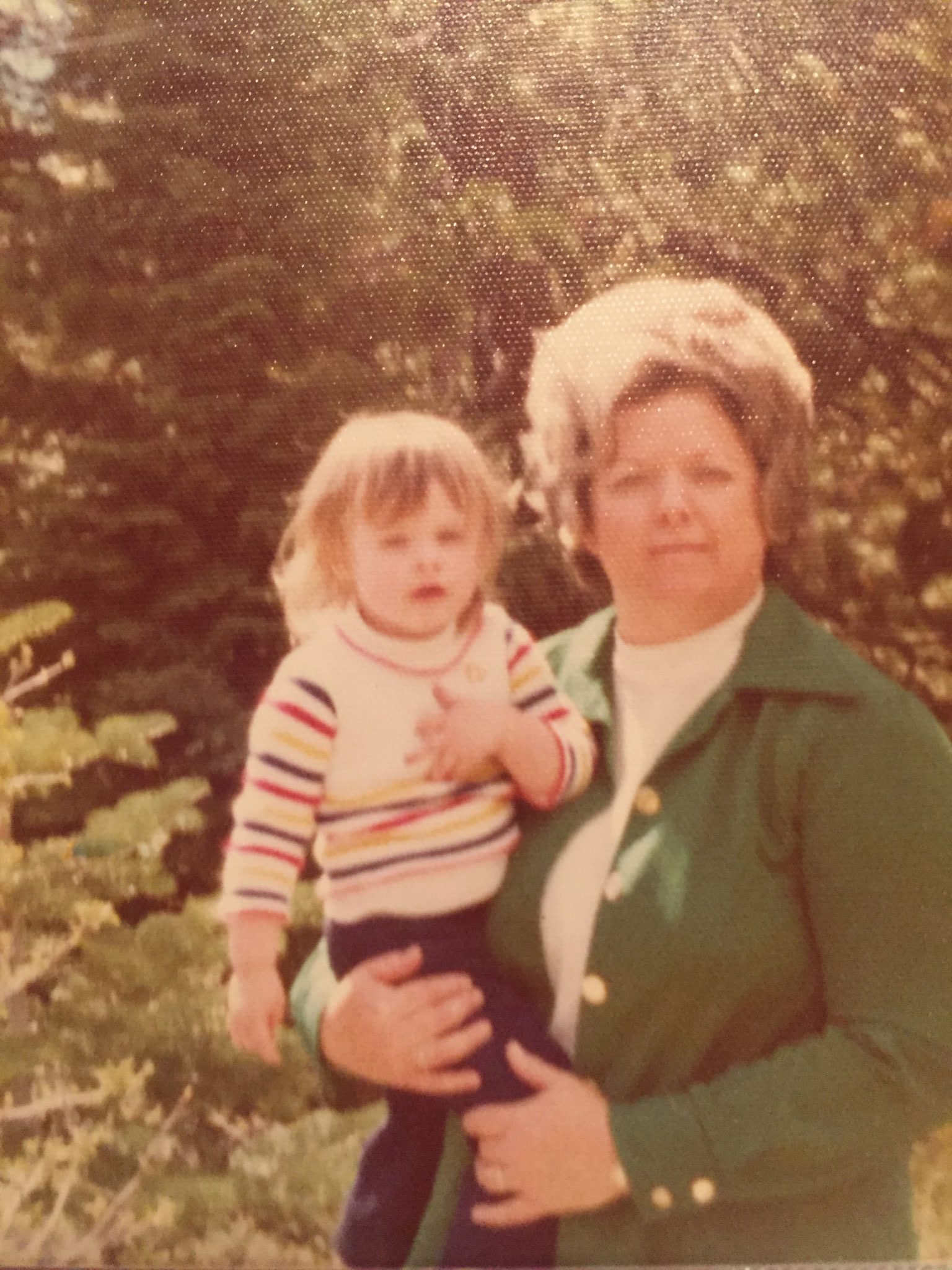
Those first few nights after her death as I tried to find sleep I would think of her and remember her – the way she smelled (of some kind of floral lotion she wore), the way she looked (always beautiful – perfect makeup and hair) and the way she sounded (she was from Texas and her southern drawl was both appealing and comforting.) She could shop like no other and put on a “supper” spread that would make anyone hungry. Those memories are sweet to me and I feel the need to capture them. But remembering her late at night wasn’t enough. I needed to document her life – remember her with purpose. How? Write it down! Journal it! Record her life story somewhere so other people can enjoy it. That is the true power of remembering our ancestors.
I have written much about how important it is to teach our children to remember who they are. (Read one blog here.) But why is it important for adults to remember our family history and stories? I have a few ideas.
Remembering ancestors gives us confidence.
Everyone deserves to be remembered.
It brings us closer to our living and dead relatives.
It helps us understand who we are.
Uncovering the mysteries of our ancestors keeps our minds sharp and is fun!
Remembering is an antidote that helps young people unplug and connect
1. Remembering ancestors gives us confidence.
I have done quite a bit of research as to why telling our children their family stories gives them confidence and it only makes sense it does the same for us as adults. How many of your great-grandparents can you name? Do you know a story for each? Discovering those stories can be somewhat of a miracle in our lives. The other day my husband made a huge discovery with his family history – finding an ancestor that fought in the Revolutionary War directly with George Washington. Wow! No matter how distant that relative is, how can you not feel good about yourself knowing someone with your blood rubbed elbows with George Washington?
Related article: What’s the history in your family history?
Professional genealogist, Jacqueline Kirk, said she got “hooked” on genealogy when she found a census record from the UK 1901 census. She learned new skills and found she had a talent for the work. “When my husband died, family history gave me an escape from grief,” she said. “I have made so many friends in the family history world and at a time when my confidence was low family history research restored my self-esteem. I owe it a lot.”
It seems the confidence that comes from remembering is two-pronged. Yes, finding family stories takes time and energy, but once a project is completed it is something to be proud of. That gives us confidence. Also, learning the amazing stories of our families can fortify us to combat hard things. The video below by Sheri Dew speaks to that point.
2. Everyone deserves to be remembered.
At RootsTech a couple of years ago one of the quotes that stood out to me the most came from FamilySearch CEO, Steve Rockwood, “Everyone deserves to be remembered.” As he said it you could hear a collective intake of breath around the room. Such a simple thought, but so profound. Yes, everyone does deserve to be remembered. I was working on a project earlier this year trying to piece some sort of story together from a gentleman’s family during Civil War times. As I was looking at the lists of names and dates a semblance of a life well-lived started to come together. Until that project, he was just a name on a census. With some diligent digging, he emerged as a Civil War Veteran who traveled back and forth between his home and the battlefield. He was remembered. And he more than deserved it.
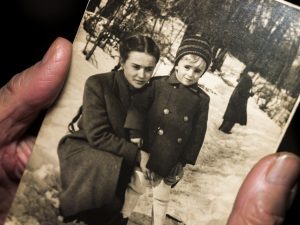
Family historian, Liz Gauffreau, started researching her maternal grandmother’s education after being inspired by a photograph of her university days during World War I. Now she feels a kinship to her that she didn’t have when she was alive.
“What means the most to me is that I’ve been able to show this side of her through my blog. She was such a private person that the family sold her short,” Liz Gauggreau said.
She deserved to be remembered and Liz did it right.
We also love this project by Permanent.org that aims to democratize the preservation of personal histories, rather than focus on the elite as in generations past.
Related article: The hard stuff. How do we overcome it and write about it?
3. It brings us closer to our relatives – both living and dead.
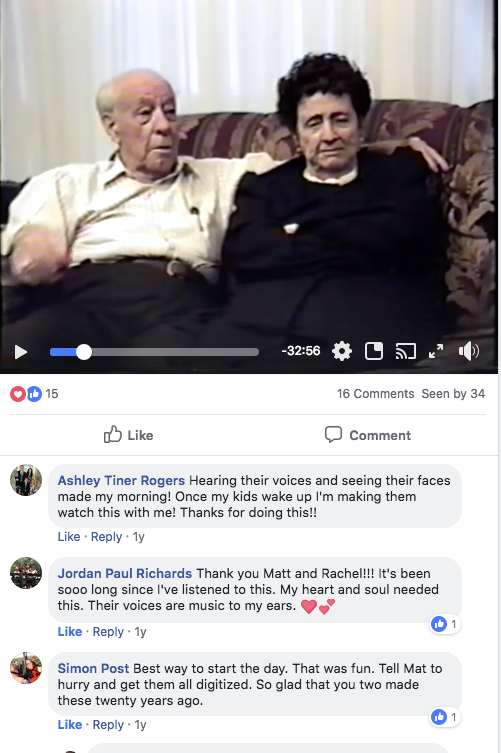
Since the pandemic, I have reached out to many family and friends that I hadn’t talked to for ages, just to check on them. Those phone calls have re-kindled relationships that I cherish. We talk about our memories together and it brings me joy and courage to tackle the trials in every day life. Remembering the living and acting on those nudges to contact them makes our lives more abundant.
Plus, sharing ancestor stories does something for our relationships with the living. It’s no secret that remembering brings us closer to our relatives who have gone before, but what about those still alive? About 20 years ago my husband and I did project where we interviewed every family member on my mother’s side from my grandma and grandpa right down to my youngest cousin. We had dozens of videotapes chronicling all the memories shared. Last year we digitized them and shared them on our family Facebook page just a week before our family reunion. The reaction was something special.
My cousin Chris Ellis wrote, “I love this so much. Thank you Matt and Rachel for this. It is really emotional for me to hear Grandpa and Grandma’s voices and the stories. That is shorthand for it made me cry… and laugh, and made me happy.” His was one of many echoing the same sentiment. Our family had this moment of closeness because we all remembered together.
I think for many of us who remember our ancestors through genealogy or story writing we feel a tug of the divine as we do the work. I am a firm believer those ancestors are close by helping us find their dates and their stories. That spark keeps us going in the work and we feel a sense of closeness that is hard to describe to others until we experience it ourselves. The phrase “angels among us” comes to mind.
My writing partner, Rhonda Lauritzen, had one of those moments and writes about it in detail here. She talked about waking with a start at 3 a.m. Instead of lying awake in bed, she decided to get up and do some work. She started to peruse the Utah Genealogical Society newsletter and ran across a story that loosely related to an ancestor’s story she and her brother had spoken about the day before. She emailed it to him with a quick note, “I thought I’d forward this in light of our conversation yesterday.’ A few hours later, he emailed back, “Very Interesting, Rhonda. Look at the last full paragraph on page two. The Indian girl, Waddie, is the exact girl I was reading about and mentioned to you.”
“The hairs on my arm prickle, as though I was awakened at 3 a.m. to find this story. As though the story wants to be known.” – Rhonda Lauritzen
Rhonda wondered if the Native American woman in the story, Nellie Leithead Justet, wanted to be remembered.
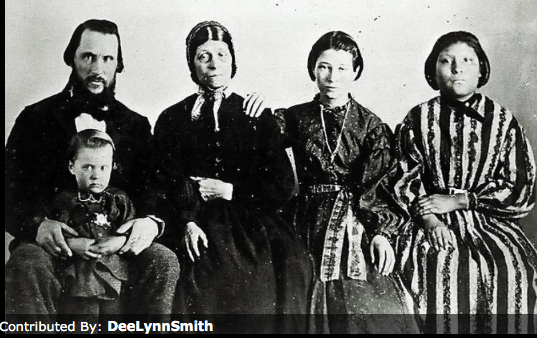
4. It helps us understand who we are.
As adults, although we don’t always like to admit it out loud, we feel a little lost at times. We wonder what our purpose is or if we are doing it right. My oldest child is 26 and I am still waiting to feel like a “grown-up” myself! Remembering our family gives us purpose and helps us understand who we are.
Diane Lund belongs to the Geneablogger’s Tribe and found an interesting sense of belonging in doing some family history research.
“I started researching after I found a purple velvet cover photo album with photos from the mid 19th century. It belonged to my grandmother. I only recognized a couple of people, so I started to look for any writing or clues in the photos. There were a few pictures that were taken in Rome – odd, since my grandmother was from Pennsylvania. My brother was able to identify the photographer was the official Vatican photographer. One of the photos was my great-grandmother’s brother, John, who was sent to Rome to study and who became a Catholic priest. I found the marriage record for my great-grandparents, Ida and Charles, and Fr. John was the officiant. It means a little more to me because my uncle was a Catholic priest and was the officiant at my parents’ and my sister’s wedding and my brother is a Catholic priest and he was the officiant at my wedding.”
For Diane and so many others, finding a link or connection to an ancestor we have something in common with gives us a greater sense of self. Seeing old photos and seeing family resemblances is only the beginning of the commonalities that link our families together. DNA is also helping people make breakthrough discoveries about themselves and others.
I loved what renowned DNA expert CeCe Moore had to say at RootsTech in 2017. In her keynote address, CeCe noted that DNA helps human beings connect – something we all long for. “It’s providing answers to hundreds of thousands – maybe even millions of people,” she said. One of the most important things she’s learned is how strong biological bonds are. She doesn’t want to push aside nurturing, but has found that our ancestors live on through us and that nature has a “profound effect on who we are.” DNA helps genealogists find out everything they can, not just what appears on a chart. Read more about DNA and connections here.
5. Uncovering the mysteries of our ancestors keeps our minds sharp and is fun!
I was talking to my aunt recently about why she loves family history and she said, “I feel like I’m an investigator putting together an important puzzle.” And she’s right. Family history and finding stories we can remember keeps us thinking and keeps our minds sharp. Remembering isn’t about living in the past. It’s about giving meaning to lives well-lived so we can have one of those well-lived lives ourselves. Unlocking and discovering our ancestors keeps us on our toes in a new and interesting way.
Last summer I was looking for some photos of my great-grandmother on FamilySearch. I was shocked to find a large downloaded history that I didn’t know existed. After all, only my grandfather and his descendants knew the history, right? Wrong. This relative wrote these words: “I hope that someone will come along that has the talent of writing to write this better than I can. For now here is the history.” I believe she wrote those words for me over 20 years ago. Now I need to get to work to write the history into story form. I’m glad she was looking out for me to keep my mind sharp and help me to remember.
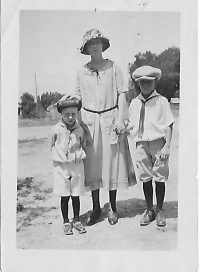
I hope that one day I will be that help for someone else. We find connections to places and events through remembering family stories that provide deep and abiding spiritual and personal connections. The hard life stories of our ancestors make us stronger as well.
At the end of all the remembering, it does us no good if we don’t record it orally or write it down. One of the best things that can be done is to create a story that can be cherished for generations.
6. Remembering is an antidote that helps young people unplug and connect
Youth are getting sucked into a cycle of instant gratification and messages of “you’re not enough,” every time they log onto social media. How can we help? We can tell them to remember who they are. Reminding them of their past is a sure-fire way for them to overcome the hardships life throws at them. Why? Because their ancestors did. I realize it’s not the cure-all for happiness, but it’s a meaningful step in the right direction. This is an important topic that deserves its own treatment, so I invite you to read a full article I’ve written on this. Click here to read ideas to help young people unplug and remember who they are.
Here are a few additional resources to help you and your family get the ball rolling and feel the power of remembering ancestors.
Storyboarding that perfect family story
Whatever way you enjoy uncovering family history and telling family stories, the key is to do it now and it will be enough. Pick a category of family history to work on and get started. We would love to hear your feedback on why you love to remember! Please share a few ideas and stories of your own remembering journey!

Rachel J. Trotter loves family storytelling. A graduate of Weber State University, she has had articles featured on LDSLiving.com, lds.org, FamilySearch.org and Meridian Magazine. She has been a speaker at RootsTech, Weber State University Family History Conference, Conference on Family History at BYU and the Southern California Genealogy Jamboree. She helps people tell and write their life stories and has written six life stories with several more in production. She has also helped several others write their own stories. She and her husband Mat have six children and she recently became a grandma! She and her family live on the East Bench in Ogden, Utah.
Printable Storyboard Template

Storyboard any book, memoir, biography, or family history tale with our free printable template. It just might save your story.


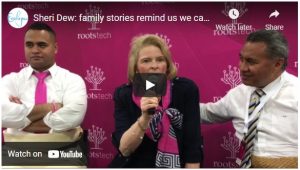

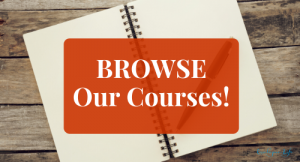
Pingback: When the places of our ancestors beckon us - a nod to Zion National Park History - Tell Your Story with Evalogue.Life
Pingback: How do pioneer stories affect you? They make a great impact.
Pingback: Finding forgotten voices in the Church History Library - Tell Your Story with Evalogue.Life
Pingback: Six Reasons There is Power in Remembering our Ancestors | Meridian Magazine
Pingback: What's in a name? Oh, so much! Find out how to tell your own name story.
Pingback: Bible Rescue Saves the Family Bible and the Genealogy Inside - Tell Your Story with Evalogue.Life
A very thought- provoking article. Thank you.
Pingback: The Power of Remembering Your Ancestors | Meridian Magazine
This is a great post! I have one more idea that may be a variation of one of yours. Sometimes we find ourselves in situations similar to those of an ancestor: feeling alone and without friends; not yet married and feel past marrying age; too much work and not enough energy; etc. Jeffrey R. Holland suggested that our ancestors are angels and that if we pray that Heavenly Father will send them to help us, we can feel their support during these difficult times. I believe him. I love my ancestor angels and I sometimes sense them buoying me up during hard times.
love, Love, LOVE this post!
I was moved by this article. Thank you for writing it. The power of story in bringing meaning and joy into our lives can’t be denied.
Thanks for your kinds words! I really appreciate your contribution and thoughts to the article as well.
This is a WONDERFUL article! I love all the points here, and it’s so true. Family stories and the simple acts of remembering and writing things down are an enormous source of peace and happiness that is too often overlooked.
Thank you! Your words mean so much, because you are an expert on this. I have found that peace and happiness when that work is done and I feel joy going back and remembering again!